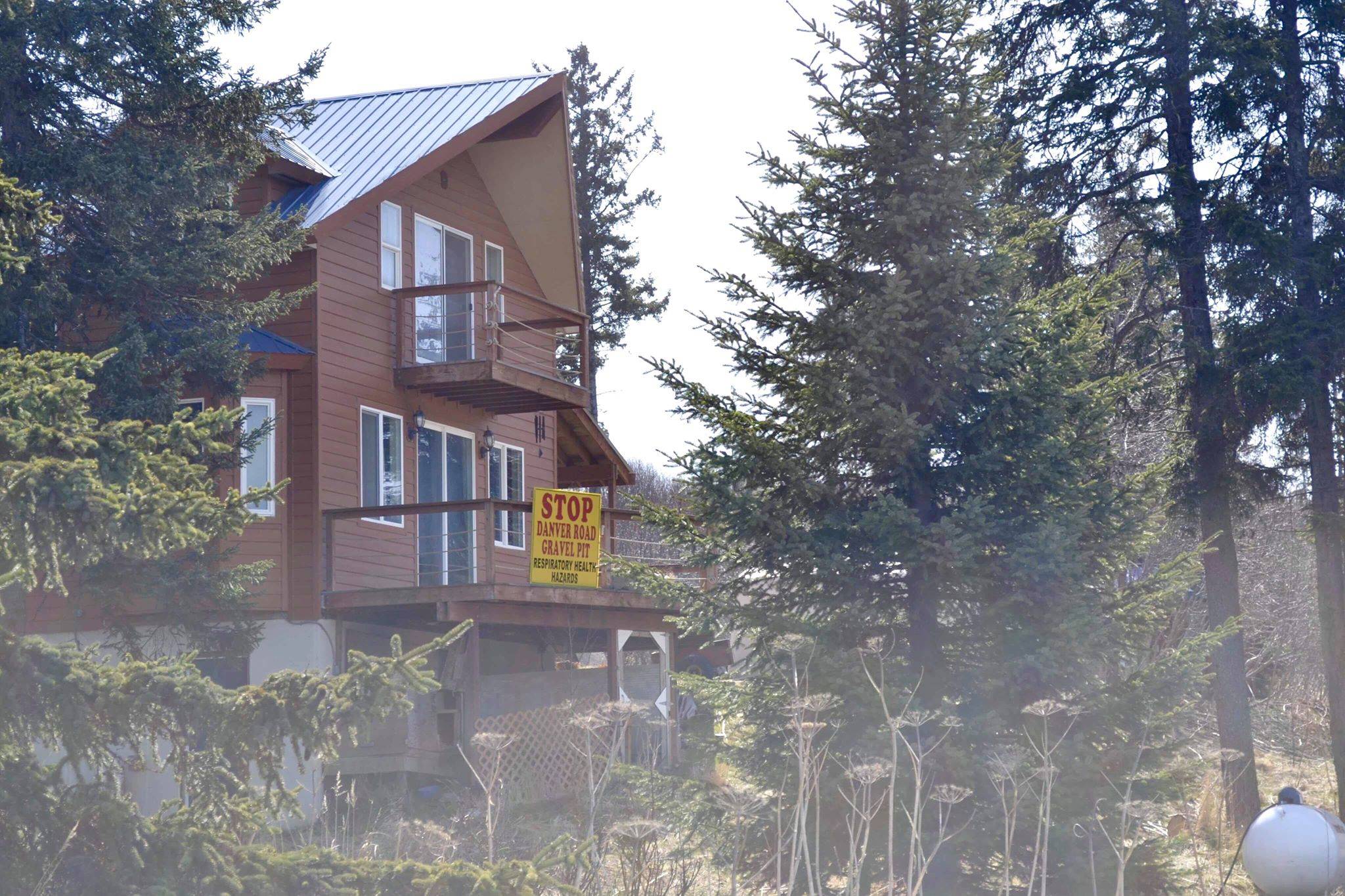On June 10, my husband and I attended the Planning Commission meeting to specifically give and hear public testimony on the Beachcomber LLC gravel pit excavation application.
In an article about the gravel pit controversy published by the Peninsula Clarion on Wednesday, June 5, it was reported that Emmitt Trimble, owner of Coastal Realty, manages Beachcomber LLC. As stated in the article, Beachcomber LLC is a company that’s been working for a year to excavate gravel on 27 acres of his property. The property totaling around 40 acres sits at the bottom of the natural amphitheater, 500 feet from the Anchor River and near five state campgrounds and three private campgrounds.
The meeting was again hours of public testimony with the Planning Commission specifying that the public could not talk about information covered in previous meetings or in written letters/comments. New people interested in this subject testified, as well as others who had not been able to attend previous meetings but wanted to provide new input, as well as those who have been dedicated to seeing this process through to finality and have homes or property adjoining or adjacent to the gravel pit and a huge stake in the approval or denial of this permit.
Full disclosure demands that I tell the readers that my husband and I currently own three pieces of property totaling approximately 7-plus acres adjacent to and to the south behind the gravel pit. Again, as the paper so eloquently puts it, “Trimble’s efforts to mine the gravel on his property is well within the law, if the permit is granted. But, balancing the rights of the property owners and neighbors in unzoned areas can be tricky.” It is sufficient to say that the existing borough code to grant permits for gravel pits is woefully inadequate. The code is currently being rewritten, however, if the rumors swirling around are true, even with the new rewrites, it will still be inadequate.
My objection to the gravel pit in this particular spot is not complicated. It is simply that when you have what is now a large, developed, residential area, with valuable pieces of property in that area primed or targeted as single-family or multifamily development, an active gravel pit excavation and possible rock crushing is not compatible and doesn’t belong. I realize it’s an unzoned area, however, that does not preclude the neighborhood and homeowners from having protections in place to preserve their property values, preserve their peace and quiet, preserve their “legacy” — to borrow a word from Mr. Trimble.
The Planning Commission has a much bigger job and decision here than whether to approve or deny this application. They need to balance the greater good, that being the preservation of property and neighborhoods, the preservation of parks, campgrounds, recreational areas surrounding a pristine river as well as the inlet, the preservation of an already degraded and inadequate road, which, if the information provided on June 10 is accurate, will not be fixed, against the long-term destruction of land (whether or not the plan is to eventually redevelop the land), the damage to all the surrounding habitat, the possible damage/contamination to the surrounding wells (no one can guarantee this won’t happen), and ultimately the destruction of Anchor Point due to upheaval, disappointment, grief, anger, broken trust, broken promises, dissatisfaction, dissension — basically all the emotions that create a breakdown in community. While none of this is in the code, this really is the crux of the decision, not the fact that Mr. Trimble has or has not met the code.
We had a personal relationship with Mr. Trimble and his wife Mary that goes back many years. We bought our original nearly 12 acres (four pieces) of land from or through Coastal Realty. We have sold one piece of the four through Coastal Realty and up until the gravel pit controversy, had the other three pieces for sale through Coastal Realty.
Please don’t get me wrong, I am not against gravel pits. I realize gravel for projects makes the world go round in this area of Alaska; I realize they provide jobs and pump money into the economy. I’m not minimizing that value. I am, however, seriously questioning purchasing property in an established housing area and developing a gravel pit in that same area when you can buy large tracts of property all over the peninsula, away from anyone, and have a pit. It’s unfortunate that it’s come down to our Borough Planning Commission to make this difficult, unique and huge decision.
Because this is no longer the Wild West, we need to drastically improve and tighten up the rules and regulations on land use in the borough. At the end of the day, I’m morbidly sad for everyone involved because this is a lose-lose no matter how you slice it.
Linda Bruce is a private citizen, quasi-social activist interested in the balance of government and personal property rights. She has lived and worked in Anchorage, Kenai and Ninilchik for 30 years and has been or is a property owner in all three locations, as well as Anchor Point.
Linda Bruce is a private citizen, quasi-social activist interested in the balance of government and personal property rights. She has lived and worked in Anchorage, Kenai and Ninilchik for 30 years and has been or is a property owner in all three locations,as well as Anchor Point.

